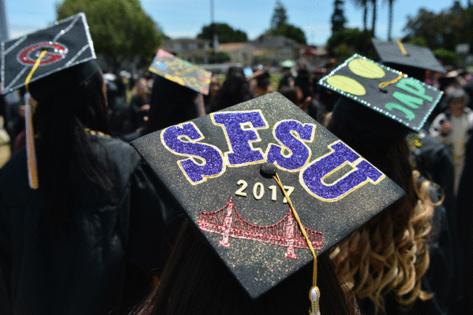Is higher education worth the cost? New study says it depends on the school
Published in News & Features
The value of a college degree largely depends on where you go, a new HEA Group study found.
And as college tuition continues to increase – more than 30% in the next five years for Cal State University – some are wondering if higher education is worth the investment.
Eloy Ortiz Oakley, president and CEO of College Futures Foundation, set out to answer that question when he commissioned the HEA Group to analyze how long it would take low and moderate income students to recoup the costs of attending colleges — from four-year institutions and community colleges to trade schools.
“We believe that we are in a crisis moment, particularly when it comes to higher education opportunities,” Oakley said. “We all know that the cost of attendance continues to rise. The public is asking questions about the value of a degree. There are a lot of conversations about whether or not your college degree still has the same value that it once promised.”
Oakley, who is the former chancellor of the California Community Colleges, said higher education is one of the largest investments that students and their families will make in their lifetime, so they should see a return on that investment.
The “Golden Opportunities” study by HEA uses data from the U.S. Department of Education’s College Scorecard to determine how long it takes 731,000 low and moderate income students at 292 higher ed institutions in the state to recoup their cost of attendance. Students whose family income is less than $75,000 a year are defined as low and moderate income.
HEA’s study measured the median salary of former students after 10 years of enrolling at each school and compared it to the salary of a high school graduate with no college experience – $26,073. That salary was then used to calculate how long it would take a student to pay down the cost of earning their degree.
The HEA Group found that generally, students who received associate’s degrees were able to recoup their educational costs quicker than students who received bachelor’s degrees or certificates.
According to the study, San Jose State University costs $47,769 for a low/moderate income student to attend. Graduates made $45,924 more annually than a student with no college experience. Under that scenario, the former student would recoup their costs of attendance in one year.
A student at De Anza Community College in Cupertino paid $9,117 to attend, and would earn $30,766 more on average than a high school grad without a college degree. In that case, the report found, the former student could get back their cost of attendance in less than six months.
...continued
©2024 MediaNews Group, Inc. Visit at mercurynews.com. Distributed by Tribune Content Agency, LLC.







Comments